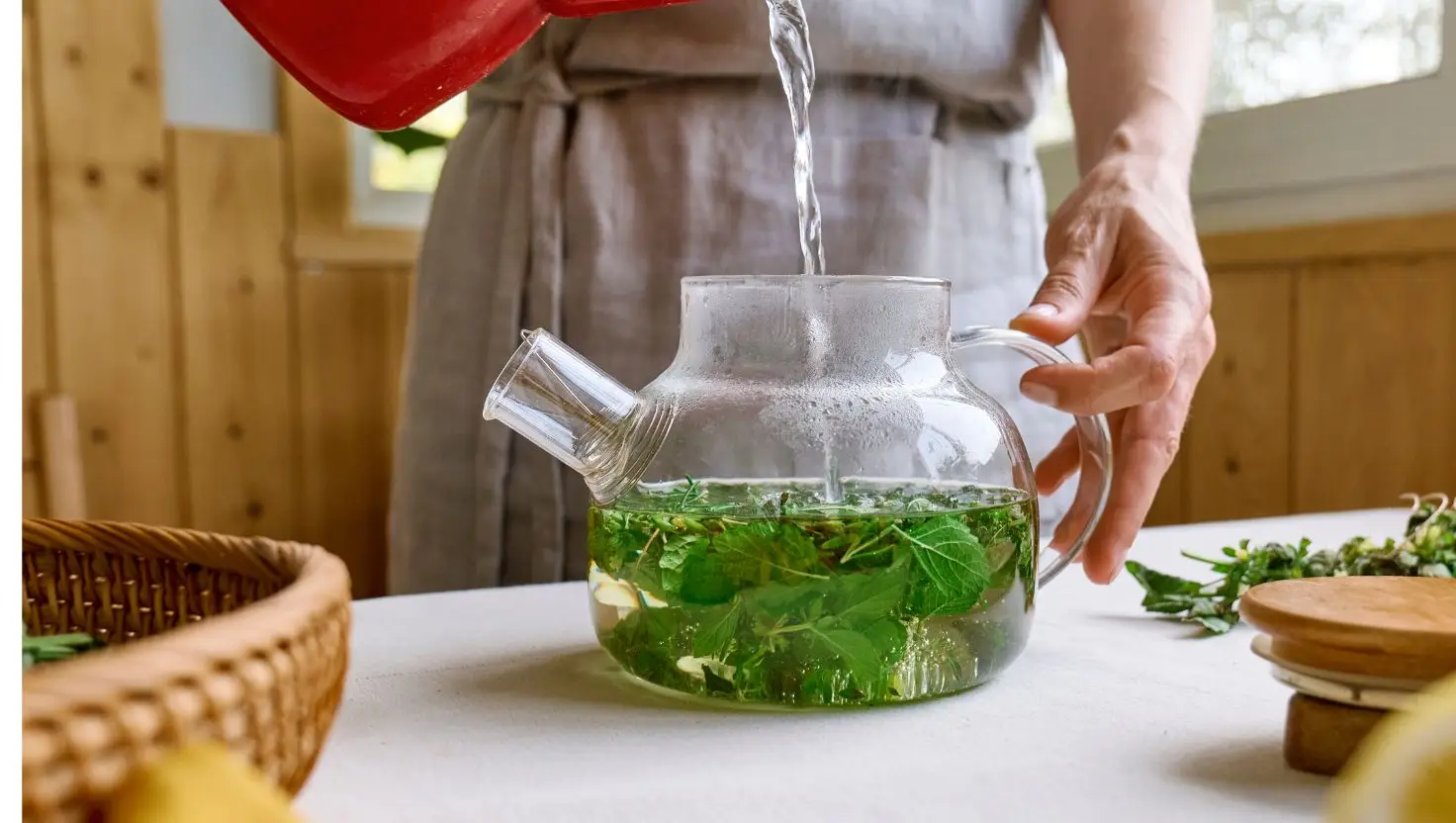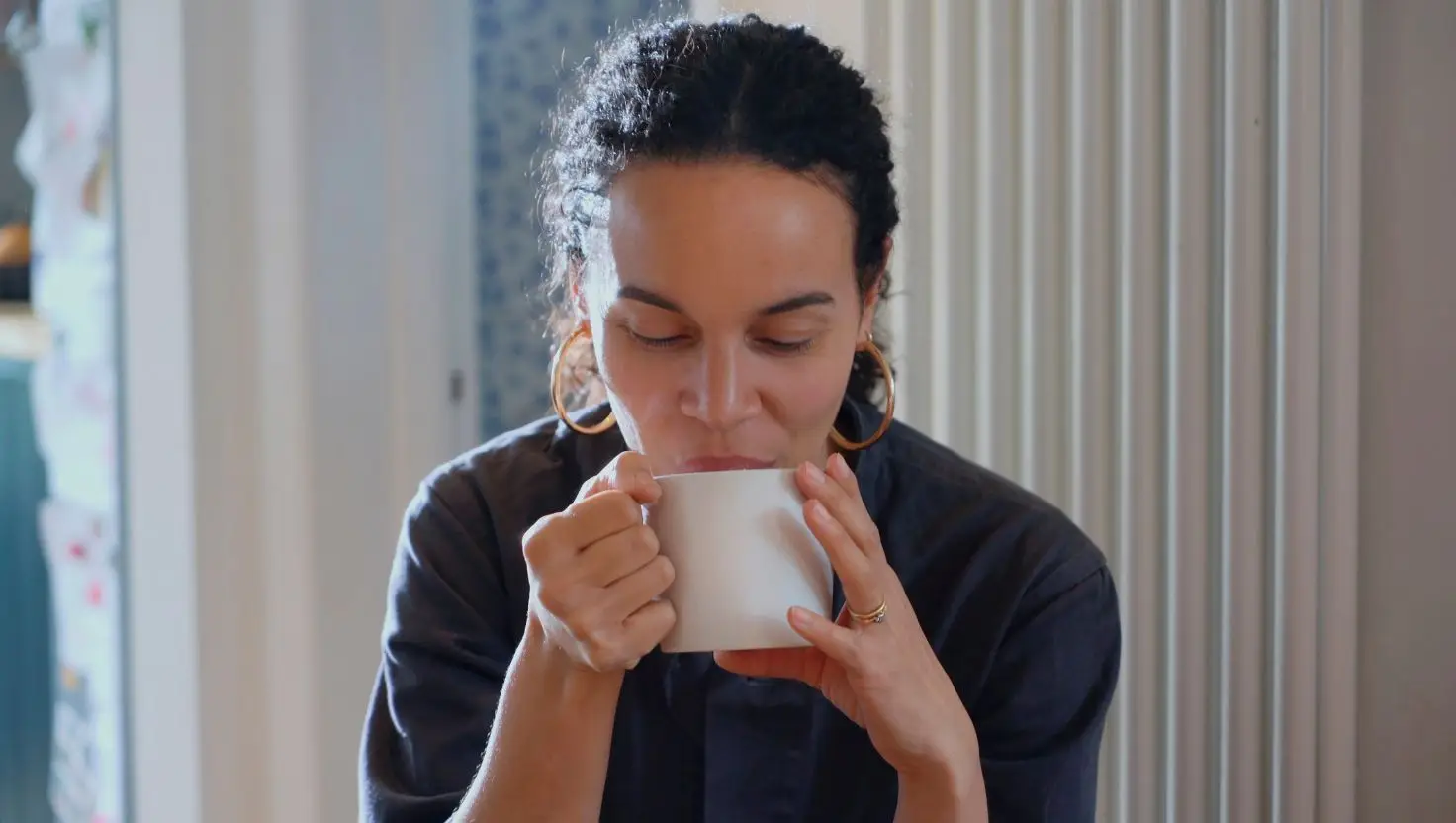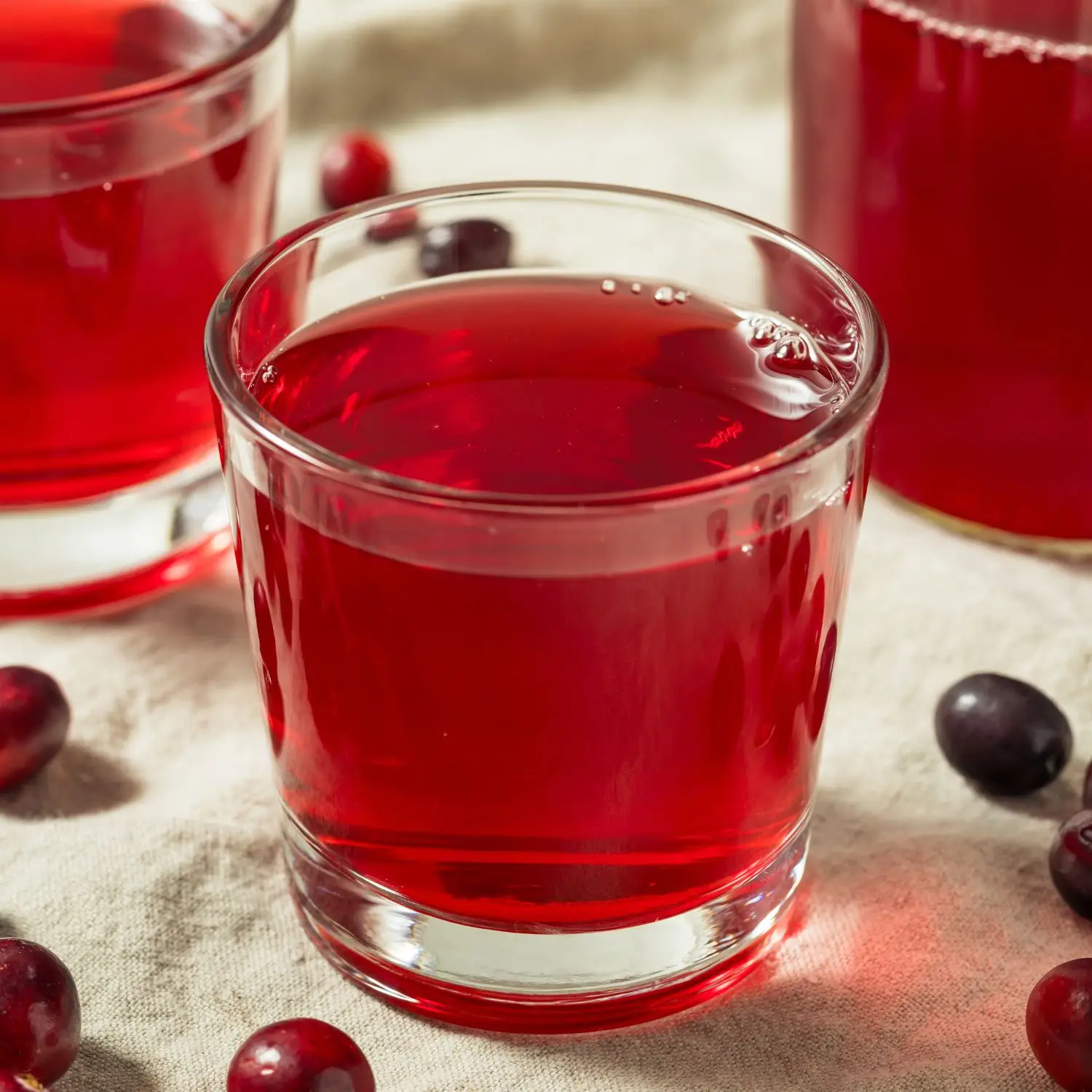
Experts have weighed in on a hot tea ‘hack’ that’s going viral on TikTok, claiming there’s ‘no convincing evidence’ to back up what some social media wellness gurus are preaching.
Like every year, 2025 has not been short of elaborate health and wellness trends, including fibermaxxing, indulging in supplements like creatine, and following Mel Robinson’s Let Them theory - a mindset shift that’s turned into a life overhaul for thousands of people.
More recently, TikTokers have been waxing lyrical about lemon balm tea, with many drinkers dubbing it a ‘natural Ozempic’.
Social media users swear that the warmed-up herb, which forms part of the mint family, has helped them shed belly fat. Others have cited its helped to dramatically reduce PMS symptoms.
Advert
These detox tea leaves come from the Melissa officinalis plant, a shrub native to the eastern Mediterranean area and western Asia, per the National Library of Medicine.

However, according to various experts, the idea that guzzling gallons of this leaf can aid weight loss is a potential hoax.
Obesity and lifestyle medicine physician Dr Deepa Sannidhi told Women’s Health Magazine that existing research could be an indication of the possibility that lemon balm could promote weight loss in humans, but there isn’t enough evidence to know for sure.
Dr Megan Rossi, world-leading gut health scientist, registered dietitian, and nutritionist, backed up Dr Sannidhi and told Cambridgeshire Live: “When it comes to weight management, there’s no convincing evidence that lemon balm tea helps with that.”
Dr Rossi explained that while lemon balm is backed in ‘some’ human studies for easing anxiety and improving sleep, most trials use high-dose extracts, not tea like TikTok users love.
“That means a bedtime brew is unlikely to deliver the same effect. Bottom line: if you enjoy lemon balm tea, sip it for pleasure, not as a guaranteed sleep fix.”
Meanwhile, Cara Wheatley-McGrain, founder of The Mindful Gut and best-selling author of Calm Your Gut, noted that animal scientists have found evidence that concentrated lemon balm extract can help regulate blood sugar and reduce liver fat.
“But still early days, and too early to generalise,” she confessed.

Speaking on viral TikTok claims, the expert said: "Lemon balm does have antioxidant and anti-inflammatory power that may protect the delicate brain–gut link.
“The Polyphenols found in herbs like lemon balm play a role in nurturing our gut microbes. And Flavonoids support relaxation through GABA receptors.”
Wheatley-McGrain said that there’s no reason not to enjoy a warm mug of lemon barm, but to make it part of a ‘diverse, colourful diet, then step beyond the mug’.
She advised moving your body and prioritising your sleep hygiene too, claiming ‘no herb does the heavy lifting’.
The writer’s idea of supplementing your diet with lemon balm, rather than relying on it, has been backed up by Dr Rossi.
She told the outlet that people should focus on adding fibre to their diets and eating a plant-diverse diet, not too dissimilar from the Mediterranean diet.
Of course, lemon balm tea isn’t the first soft beverage to go viral on social media.

Last year, wellness-obsessed users were raving about the so-called sleepy girl mocktail, a beloved beverage promising relaxation and improved sleep.
Its ingredients include tart cherry juice, magnesium powder, and unflavoured or prebiotic soda.
While some were dubious about its certifications, it turns out the benefits of consuming tart cherry juice has been hailed by experts for more than a decade.
A 2010 study published in the Journal of Medicinal Food found that consuming tart cherry juice increased melatonin levels and improved sleep quality in adults with insomnia.
Another study published in the same journal eight years later found that drinking tart cherry juice twice a day for two weeks improved sleep quality and duration in adults over the age of 50.
Bedtime drinks, even if you don’t really do anything, we’re coming for you!
Topics: Health, Social Media, TikTok
